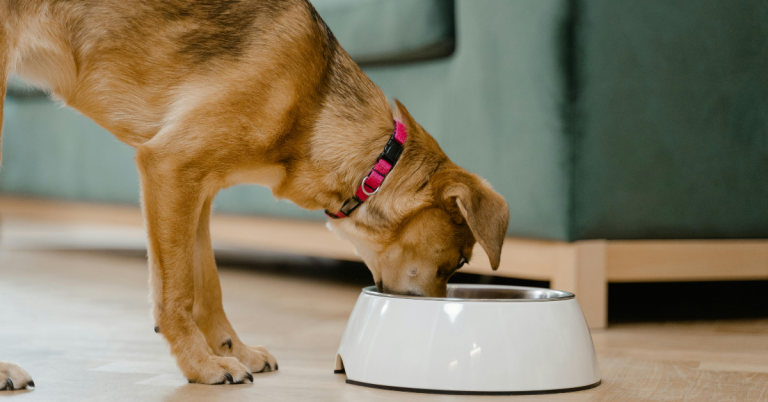How to Support Your Dog Through Cancer
Hearing that your dog has cancer is one of the most heartbreaking moments a pet owner can face.
Your mind races with fear, questions, and an overwhelming sense of helplessness. But your dog needs you now more than ever—and there are ways to help them through it.
Whether the diagnosis came suddenly or after weeks of uncertainty, the road ahead can feel lonely and uncertain. But it doesn’t have to be.
With the right support, treatment, and emotional care, your dog can still experience love, comfort, and even joy.
This article walks you through what truly matters during this difficult time—medical care, quality of life, and the small, meaningful ways you can make every day count.
Because when a dog is fighting cancer, your love becomes part of the treatment plan.
Get an Accurate Diagnosis
When faced with the possibility of cancer, ensuring an accurate diagnosis is crucial. A second opinion can provide peace of mind, while a proper biopsy and full diagnostic imaging confirm the type and stage of cancer. Consulting with an experienced veterinary oncologist helps clarify the medical jargon.
Being well-informed sets the foundation for effective treatment planning. This diligence ensures you’re not just making decisions based on a single viewpoint. It’s worth considering all options before proceeding.
Ultimately, clear communication with your vet and a comprehensive understanding of your dog’s condition will guide you through. A meticulous approach at this stage fosters confidence in whatever path you choose to take.
Understand the Treatment Options
Treatment options vary widely, from chemotherapy and radiation to surgery and palliative care. Each comes with its own set of expectations and potential side effects. Holistic therapies, like acupuncture or herbal supplements, can complement traditional methods.
Understanding the full spectrum of treatments helps tailor a plan to your dog’s specific needs. It’s not just about curing the disease; it’s about enhancing the quality of life.
Discussing with your vet about what each option entails allows for informed decision-making. It’s a path of balancing hope with practicality.
This collaborative effort with your veterinary team creates a comprehensive support system for your furry friend.
Build a Veterinary Support Team
Your dog’s journey through cancer is best navigated with a robust support team. This includes oncologists, nutritionists, pain specialists, and integrative vets. Each brings unique expertise to the table, ensuring all aspects of care are covered.
Creating a multidisciplinary team allows for a holistic approach to treatment. It ensures that no stone is left unturned.
Engaging with specialists who understand the nuances of cancer care can make a world of difference. Their insights create a safety net, catching details that might otherwise slip through the cracks.
Manage Pain Effectively
Pain management stands as a cornerstone of compassionate cancer care. Medications like NSAIDs or Gabapentin are common prescriptions. Additionally, alternative options such as acupuncture or cold laser therapy offer non-pharmaceutical approaches.
Addressing pain promptly ensures that your dog maintains a level of comfort. It’s about giving them the dignity they deserve during challenging times.
Balancing traditional medications with alternative therapies can optimize relief. This dual approach offers both immediate and long-term benefits.
A tailored pain management plan, adjusted as needed, keeps your furry friend as comfortable as possible.
Optimize Nutrition
Nutrition plays a vital role in supporting your dog’s health during cancer treatment. High-protein, anti-inflammatory diets are often recommended. Supplementing with omega-3 fatty acids can bolster your dog’s immune system.
Tailoring your dog’s diet to their specific needs can aid in recovery and overall well-being. It’s not just about feeding them; it’s about nourishing them.
Consulting with a veterinary nutritionist can provide personalized dietary plans. Their expertise ensures that what goes into your dog’s bowl supports their journey.
Healthy eating habits contribute to maintaining energy levels and reducing inflammation.
Create a Comfortable Living Space
A comfortable living space is essential for a dog battling cancer. Soft bedding, temperature control, and ramps for easy mobility ensure your pet can rest and move around with ease. Creating quiet areas for relaxation helps reduce stress.
Designing a space that meets your dog’s comfort needs reflects your love and care. It’s about creating a sanctuary.
Thoughtful adjustments in their environment can significantly impact their quality of life. Even small changes make a big difference.
Prioritizing comfort helps support both physical and emotional well-being.
Track Symptoms and Quality of Life
Keeping track of symptoms and quality of life is essential in managing cancer. A daily journal or Quality of Life scale can help in logging appetite, energy levels, and discomfort. It provides a clear picture of your dog’s daily experiences.
Regular monitoring allows you to make informed decisions about treatment adjustments. This practice ensures you’re always one step ahead.
By paying attention to small changes, you can better communicate with your vet. It builds a proactive partnership in care.
Documenting these observations fosters a deeper understanding of your dog’s needs and well-being.
Provide Emotional Support and Companionship
Emotional support and companionship are invaluable to a dog fighting cancer. Physical closeness, establishing routines, and emitting calm energy can alleviate anxiety. These small gestures of love provide immense comfort.
Being present in your dog’s life assures them they’re not alone in this journey. It’s about letting them feel your unwavering support.
Creating a soothing environment helps in reducing stress and promoting healing. Your presence becomes a balm to their spirit.
Through companionship, you offer a loving anchor during challenging times, fostering resilience and hope.
Keep Your Dog Mentally Stimulated
Mental stimulation plays a crucial role in your dog’s cancer journey. Puzzle toys, snuffle mats, short walks, or scent games can help keep them engaged. These activities offer a sense of normalcy and joy.
Engaging their minds distracts from discomfort and keeps spirits high. It’s about finding moments of happiness amidst adversity.
Introducing variety in playtime stimulates cognitive function and creates positive experiences. Every wag of the tail is a victory.
Providing mental challenges fosters a hopeful outlook, enriching their day-to-day life.
Practice Gentle Grooming and Hygiene
Gentle grooming and hygiene practices are pivotal for a dog undergoing cancer treatment. Handling sensitive areas with care and maintaining cleanliness can prevent additional stress. It’s about making your dog feel comfortable in their own skin.
Regular grooming sessions become an opportunity for bonding and relaxation. They also help in spotting any physical changes early on.
By prioritizing hygiene, you’re nurturing both health and well-being. This routine offers a gentle touch and a patient hand.
Grooming becomes a comforting ritual, reinforcing trust and care.
Be Open to Palliative and Hospice Care
Palliative and hospice care focus on comfort when curative options are no longer viable. It’s about enhancing quality of life rather than seeking a cure. Understanding these options allows for dignity and peace.
Open conversations with your vet about end-of-life care can make this transition smoother. It’s about preparing for what lies ahead.
Embracing this approach ensures that your dog receives compassionate care throughout their journey. It’s a path of love and respect.
Palliative care provides a gentle cocoon, wrapping your pet in a sense of peace and comfort.
Know the Signs It’s Time to Say Goodbye
Recognizing when it’s time to say goodbye is one of the hardest parts of loving a pet. Signs like persistent pain, loss of interest in favorite activities, and significant weight loss can indicate it’s time. Being attuned to these signals helps in making compassionate decisions.
Discussing these signs with your vet ensures clarity and support. Their guidance can provide comfort and confidence.
Emotionally preparing for this moment is essential. It’s a testament to your love and responsibility.
Saying goodbye is a profound act of kindness, granting your beloved pet peace and dignity.
Find Emotional Support for Yourself
As you support your dog, finding emotional support for yourself is equally important. Joining pet cancer support groups, seeing a therapist, or talking with others who’ve been through similar experiences can be incredibly therapeutic. It helps you navigate the emotional rollercoaster of pet cancer care.
Sharing your journey with others creates a sense of community and understanding. You’re not alone in this struggle.
Taking care of your emotional health empowers you to be a stronger support system for your dog. It’s an essential form of self-care.
This shared connection can bring comfort and strength during challenging times.
Consider Financial Planning
Financial planning is a key aspect of managing your dog’s cancer journey. Pet insurance, CareCredit, and nonprofit funds can alleviate the monetary burden. Understanding these options prepares you for ongoing or emergency costs.
Planning ahead reduces stress and allows you to focus on your dog’s care. It’s about being proactive and informed.
Discussing financial options with your vet can uncover new resources or assistance programs. This transparency aids in budgeting for treatments.
Being financially prepared ensures that nothing stands in the way of providing the best care possible.
Celebrate the Small Wins
Celebrating small wins brings joy and positivity to your dog’s cancer journey. Taking photos, sharing special meals, or marking good days with simple joys can create lasting memories. It’s about cherishing every moment.
These joyful highlights become a source of strength and motivation. They remind you of the bond you share with your furry friend.
Embracing the present and finding happiness in little victories enriches both your lives. It’s a celebration of love and resilience.
Each smile, wag, and playful bark becomes a cherished memory in this special time together.





















